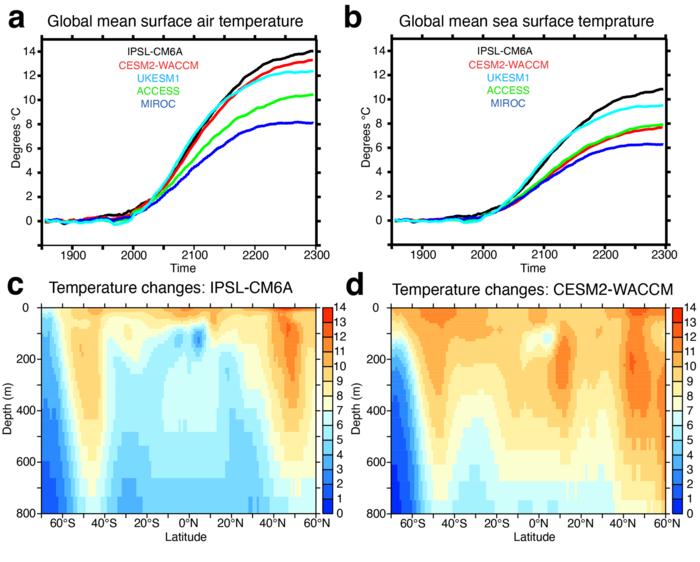How will global warming impact marine ecosystems? This is a critical question when addressing future climate change. Sustained climate change may have a particularly large negative effect on one of the smallest lifeforms in the ocean: phytoplankton. Phytoplankton is essential for maintaining balance in the marine food chain, so population shifts can result in substantial effects throughout the food chain.

Credit: ©Tohoku University
How will global warming impact marine ecosystems? This is a critical question when addressing future climate change. Sustained climate change may have a particularly large negative effect on one of the smallest lifeforms in the ocean: phytoplankton. Phytoplankton is essential for maintaining balance in the marine food chain, so population shifts can result in substantial effects throughout the food chain.
Marine phytoplankton live in the upper-ocean layer and therefore are directly affected by changes in sunlight and temperature. However, an ocean layer below the surface called the “twilight zone” (where light is unavailable) can also affect surface-dwelling phytoplankton. This is largely due to the effect of warmer temperatures on bacteria, which decompose organic matter raining from above and release inorganic nutrients in the process – nutrients that phytoplankton need for photosynthesis.
In a new study published in Nature on August 22, 2024, researchers show that these two domains – namely the well-lit surface water and the twilight zone below – are coupled in a way that can strongly alter the response of surface ecosystems to climate change. This coupling is provided through what is termed “thermocline renewal,” whereby over decades the relatively warm upper ocean waters spanning the upper 300-500 meters are renewed by passing through the surface ocean.
To test the hypothesis that warming can strengthen the recycling of nutrients between the ocean layers, a team of climate scientists from Japan, France, and the United States investigated this with combined use ocean observations and three-dimensional ecosystem models. Using ocean measurements, the team was able to identify the presence of large pools of inorganic nutrients in the twilight-zone of the low latitudes that are sustained largely through bacterial decomposition of organic matter falling from the surface. With models that predict up to the year 2300, the team was then able to demonstrate the critical importance of this part of the marine nutrient pool for sustaining surface photosynthesis of phytoplankton through the process of thermocline renewal.
The analysis of ocean observations identified that for the modern climate state, low-latitude bacterial and other processes are responsible for at least half of the critically important nutrients that are recycled between the mesopelagic domain and the surface layers through a process called “upwelling”. The three-dimensional models were used to identify first that this large pool of subsurface nutrients reflects local low-latitude processes. Subsequently, Earth system models were used to evaluate the degree to which the proposed low-latitude coupling mechanism can account for projected changes in the models.
“Our study highlights a mechanism that we believe can help to advance our understanding of what has been an overlooked aspect in projections of marine ecosystem health.” says Olivier Aumont from Sorbonne Universités in France. Understanding the coupling between the mesopelagic twilight zone and surface waters is an area where improved mechanistic understanding can help to further improve our climate change projections, which still indicate some disagreement. “We hope that our work will stimulate novel research to further understand the ocean circulation pathways of thermocline renewal” explains Keith Rodgers, a researcher from Tohoku University.
The study could also have implications for understanding how habitats of importance to marine resources such as fisheries can be impacted by climate change. The overall trend is that there is a gradual de-oxygenation and warming of the ocean that may ultimately make it more difficult for fish to live. Therefore, it’s important to create models that make accurate projections of marine ecosystems and fish habitats in a changing climate.
Journal
Nature
Article Title
Low-latitude mesopelagic nutrient recycling controls productivity and export
Article Publication Date
22-Aug-2024



